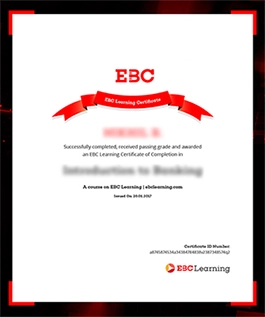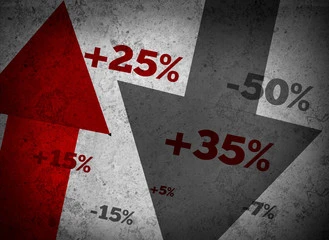Corporate Assets Valuation under IBC
About Course
Valuation plays a critical role in the IBC resolution process to achieve the objectives of all the stakeholders involved. The precise valuation of the corporate debtor is important for deciding its future and computing the value of the corporate debtor's assets. This crucial responsibility is vested upon registered valuers. The valuer is the professional who carries out inspections to help determine the current market value of property, land, stocks, shares, debentures, securities or goodwill or any other assets of the company.
This course explains what valuation means, how it is computed, and what are the key factors which impact valuation. The entire course is covered in several videos. At relevant places the authors have incorporated their practical experience and real examples where they were personally involved in their capacity as valuation experts. At the end of the course, they've also given a case study to discuss the practical application of the valuation concepts.

It's far better to buy a wonderful company at a fair price than a fair company at a wonderful price.
Warren Buffet- 1. 📕 Introduction
- 1.1 ▸ Welcome
- 1.2 ✒ Exercises
- 2. 📕 Valuation requirements under IBC
- 2.1 ▸ Introduction to IBC
- 2.2 ▸ Part A: Overview of insolvency process under IBC
- 2.3 ▸ Part B: Overview of insolvency process under IBC
- 2.4 ▸ Valuation requirement under the Insolvency and Bankruptcy Code
- 2.5 ✒ Exercises
- ☆ Feedback
- 3. 📕 Registered valuers
- 3.1 ▸ Registered valuers
- 3.2 ▸ Requirements for becoming a registered valuer and its procedure
- 4. 📕 Introduction to valuation
- 4.1 ▸ Valuation - An overview
- 4.2 ▸ Valuation base
- 4.3 ▸ Valuation premise
- 4.4 ✒ Exercises
- 5. 📕 Valuation approaches
- 5.1 ▸ Brief overview of valuation approaches
- 5.2 ▸ Income approach
- 5.3 ▸ Discount cash flow (DCF)
- 5.4 ▸ Free cash flow to Firm (FCFF)
- 5.5 ▸ Free cash flow to Equity (FCFE)
- 5.6 ▸ Terminal value
- 5.7 ▸ Market approach
- 5.8 ▸ Asset approach
- 5.9 ✒ Exercises
- 6. 📕 Most commonly applied valuation methodology for IBC valuation
- 6.1 ▸ Most commonly applied valuation methodology for IBC valuation
- 6.2 ▸ Valuation of securities or financial assets
- 6.3 ▸ Valuation of real estate holding subsidiary, joint venture or associate company
- 6.4 ▸ Valuation of inventory
- 6.5 ▸ Valuation of trade receivables
- 6.6 ▸ Valuation of intangible assets
- 6.7 ▸ Other categories of securities or financial assets
- 6.8 ▸ Valuation of plant and machinery of the corporate debtor
- 6.9 ▸ Valuation of land and building
- 6.10 ✒ Exercises
- 7. 📕 Case study
- 7.1 ▸ Valuing land, building, plant and machinery
- 7.2 ▸ Valuing land, building, plant & machinery
- 7.3 ▸ Valuing non-current investments, loans and advances and other non-current assets
- 7.4 ✒ Exercises
- 8. 📕 Structure of valuation report and documentation
- 8.1 ▸ Key contents of valuation report
- 8.2 ✒ Exercises
- ☆ Feedback
Why Take This Course?
Though the enactment of the IBC has led to many IRP professionals, yet valuers under IBC are relatively few. Now for the first time, the profession of valuers has received a statutory recognition similar to the profession of Chartered Accountants, Company Secretary and Insolvency Resolution Professionals. From 31 January 2019 onwards, only a ‘ registered valuer’ is permitted to undertake valuation required under the Companies Act and rules made thereunder. This makes the position of a registered valuer much sought after. Their scope of work would include:
- valuation in insolvency proceedings or for meeting the requirements of the Companies Act
- help stakeholders accept deals based on the intrinsic or actual value of the assets
- valuing projects for lending made by banks
- render their services to the Government in determining the fair value of import or export items
Since the valuation of assets is central to the IBC resolution process, this course will also be useful to resolution professionals and all other stakeholders, including all creditors and the corporate debtor. It will enable each party to critically appreciate the valuation that has been arrived at and judge if the valuation that has been presented was correctly arrived at.
Instructors

Gandharv Jain
Co-Founder, Finvox Analytics
Gandharv Jain is a CA, CPA (USA), Registered Valuer and an Investment Banker with 15+ years of experience in conducting business valuations, raising funds for clients and structuring corporate transactions in compliance with foreign exchange laws.

Amrish Garg
Co-Founder, Finvox Analytics
Amrish is a CA, CFA and a Registered Valuer with 12+ years of experience in fundraising, transaction support services, business valuations, purchase price allocation and complex instruments valuations.

The liabilities are always 100 percent good. It’s the assets you have to worry about.
Charlie MungerCertificate
Complete this course and exercises to earn a certificate. Share it with your friends, colleagues, and employers.*
*You must Subscribe to get a certificate.

Limit Reached or Trial Expired
You have reached the limit of 2 audit enrollments or your trial period has expired.

